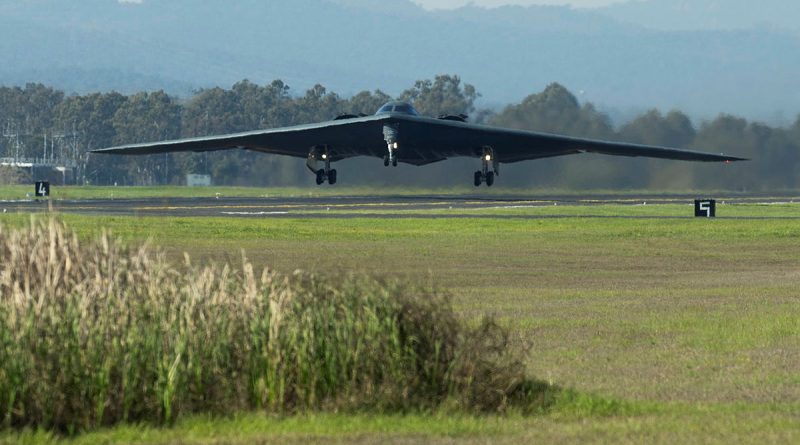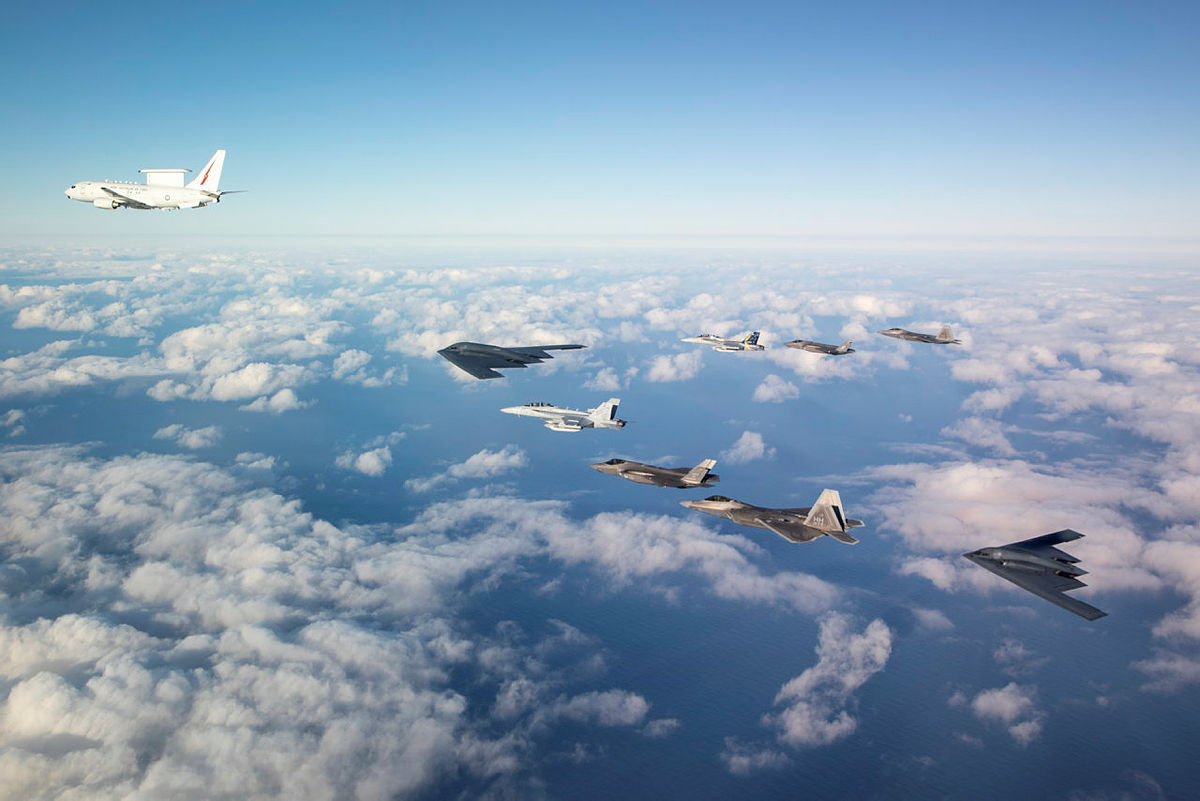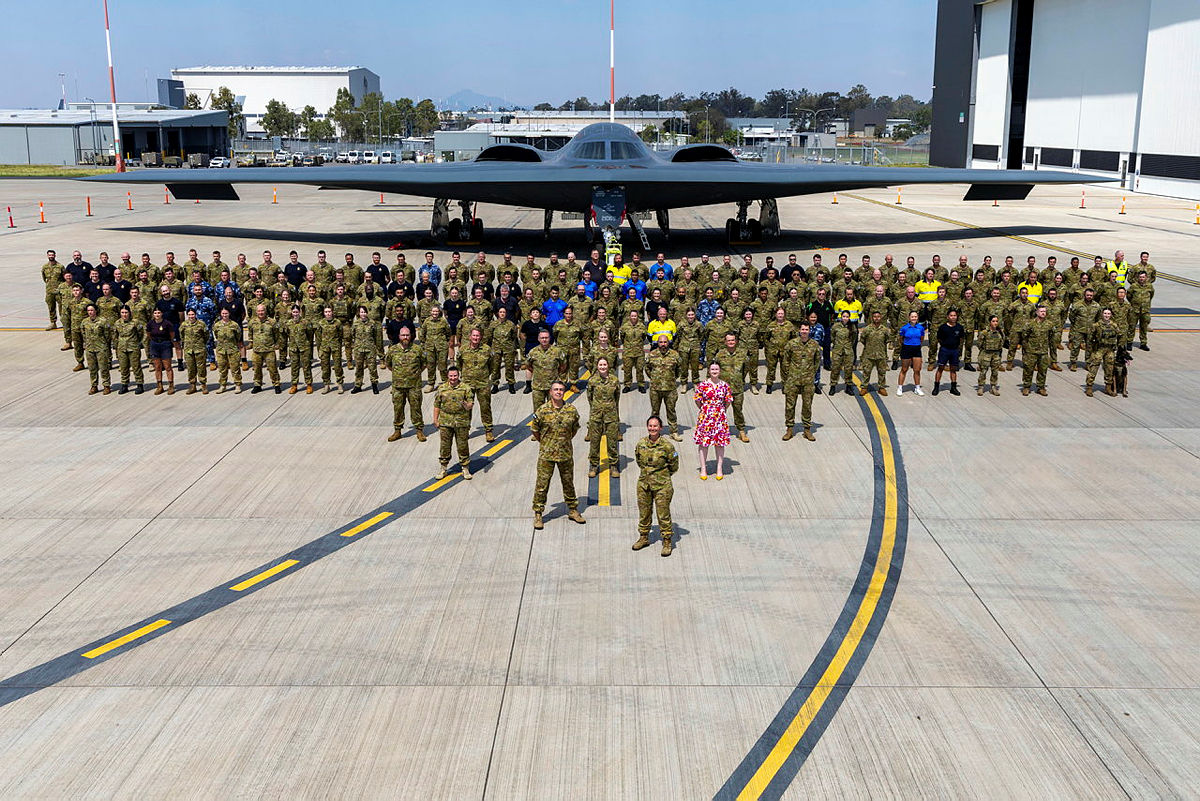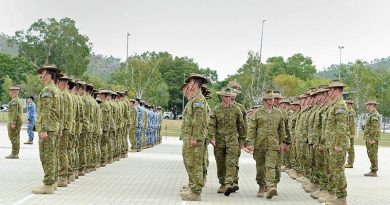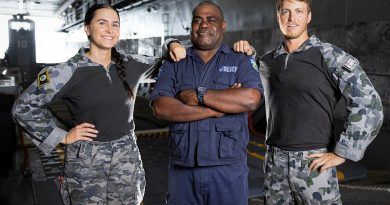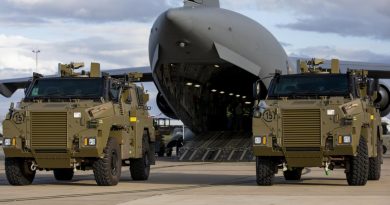Spirit of cooperation

A United States Air Force (USAF) Bomber Task Force mission, involving its B-2 Spirit stealth bombers operating out of RAAF Base Amberley across August and September, has concluded.
CAPTION: A United States Air Force B-2 Spirit stealth bomber takes off at RAAF Base Amberley. Story by Lieutenant Rob Hodgson. Photo by Corporal Brett Sherriff.
The aircraft from 110th Expeditionary Bomb Squadron are part of the Enhanced Air Cooperation Program and were working closely with RAAF air assets to enhance interoperability and bolster the collective ability to support a free and open Indo-Pacific.
The B-2 Spirit is the most capable strategic bomber in service.
The aircraft’s low-observable, or ‘stealth’, characteristics give it the unique ability to penetrate an enemy’s most sophisticated defences and threaten its most valued targets.
Its low observability provides it with greater freedom of action at high altitudes, thus increasing its range and a better field of view for the aircraft sensors. Its unfuelled range is about 9600km, but through air-to-air refuelling it is capable of hitting any target anywhere in the world from its base in Missouri, US.
While deployed out of Amberley, the B-2s maintained a high flying tempo.
The training missions had the aircraft covering vast distances throughout Australia and the Indo-Pacific region, including a ‘hot pitting’ at Diego Garcia, a small island in the Indian Ocean.
Hot pitting is an agile refuelling method allowing an aircraft to land, refuel and take off without shutting its engines down, spending the shortest time possible on the ground.
Exercises with RAAF were the centrepiece of the Bomber Task Force, however, and missions involved the B-2s working in the air with a bevy of RAAF assets including F/A-18F Super Hornets, EA-18G Growlers, F-35A Lightning IIs, KC-30A Multi-Role Tanker Transports, E-7A Wedgetails and P-8A Poseidons.
CAPTION: A Royal Australian Air Force E-7A Wedgetail, two EA-18G Growler jets and two F-35A Lightning II aircraft fly in formation with two United States Air Force B-2 Bombers and two F-22 Raptor fighter jets.
Group Captain Paul Jarvis, Officer Commanding 82 Wing, which hosted the Bomber Task Force, said enhancing interoperability and building teamwork was the key.
“Working in smaller packages, like we are here, and focusing on the detail,” Group Captain Jarvis said.
“Just ironing out little hiccups while we’re happily in peacetime, and we have enough time to brief, execute, debrief, roll the lessons into a couple of days later and do it again and prove that the fix that we identified worked.
“That’s really, really important training.”
Commander 110th Expeditionary Bomb Squadron Lieutenant Colonel Justin Meyer said their mission was to maintain ready and postured forces that are prepared to support their commander’s objectives.
“Our bombers integrated with US and allied forces to demonstrate the strength and interoperability of our joint and combined arms teams in the Indo-Pacific theatre,” Lieutenant Colonel Meyer said.
“I would like to thank the RAAF, the local community and Australia for the tremendous hospitality they have provided my team since the moment we landed.”
CAPTION: Members of No 23 Squadron with a USAF B-2 Spirit Stealth Bomber at RAAF Base Amberley, Queensland. Photo by Aircraftsman Campbell Latch.
As always, the success of this Bomber Task Force deployment relied on smooth and efficient combat support, provided in this instance by 23 Squadron, RAAF Base Amberley.
Commanding Officer 23 Squadron Wing Commander Tanya Evans said the unit provided a number of base services to the Bomber Task Force throughout its deployment.
“This included aviation refuelling, provision of aviation rescue and firefighting services and aircraft security, through to domestic accommodation, meals and physical training facilities – we greatly welcomed the opportunity to support our USAF friends,” Wing Commander Evans said.
The overall success of the deployment stands as a testament to the strong friendship, nurtured and shared, between the RAAF and USAF.
The two forces are evolving together from a state of interoperability towards one of interchangeability fostered by shared objectives, backed by tradition and familiarity after decades of training together.
.
.

.
.

